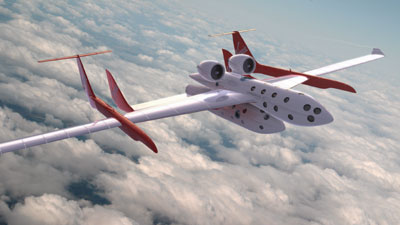Will James Oberstar kill the space tourism industry?by Taylor Dinerman
|
| Even worse, Oberstar might open the door for the tort lawyers to come in and strip mine all the investment capital out of the industry. |
In spite of some weasel wording, the hard legal requirements of Oberstar’s proposed regulation would effectively kill the whole entrepreneurial suborbital industry. The cost not only of developing a manned rocket that complies with the kind of safety burden that Oberstar wants, not to mention the astronomical cost of proving that a vehicle actually does comply with the regulations, will make it all but impossible even for the deepest pockets to build anything.
Even worse, Oberstar might open the door for the tort lawyers to come in and strip mine all the investment capital out of the industry. They almost killed off the US general aviation industry before Congress stepped in and put a stop to the lawsuit avalanche. In that case, tens of thousands of US jobs were at stake, but with the space tourism industry so far only hundreds of jobs are now at risk. The greatest danger is that all the thousands of high-paying jobs that the space tourism industry will create if the industry is left to develop under current rules will simply never exist.
America’s economy works, however imperfectly, because while old industries are constantly failing or moving offshore in search of cheaper labor or foreign subsidies or both, new industries are being created at an amazing rate. This is true in big ways and small. The US information or computer industry has maintained its world-beating lead by staying agile and never allowing itself to rest. In contrast, the automobile industry in the US is shrinking due to its failure to respond to competition with products that attract the consumer and to a labor-management dynamic that is at least half a century out of date.
The space tourism industry is, so far, mostly a Russian thing. Thanks to their willingness to collaborate with American entrepreneurs like Eric Anderson of Space Adventures, they have opened up the orbital market. The suborbital market does not yet exist, although Virgin Galactic is planning to open it up in the near future and other companies such as Jeff Bezos’ Blue Origin are apparently not all that far behind. The companies have depended primarily on angel investors to get as far as they have, but if overregulation changes the business environment the big money guys may just pick up and go home.
Meanwhile, the US is not the only nation where suborbital space tourism is being developed. Russia is working on the Explorer suborbital rocket plane, and Singapore and Dubai are both thinking about establishing saceports as bases for these vehicles. The technology that this type of craft represents is economically and militarily important. If a nation or organization can build a manned suborbital rocket plane, it will be able to eventually build a satellite launcher or an ICBM. Over time, the spread of this know-how will undermine the Missile Technology Control Regime (MTCR), but killing US efforts will spread this expertise worldwide much faster.
| The industry has gone from a mad dream to the threshold of commercial viability. It is not quite robust enough to stand up to the kind of legal and political ravaging it would be subject to if the CSLAA was changed. |
Oberstar claimed that he was acting in the name of safety. Riding rockets is indeed an inherently unsafe activity, but probably no more so than whitewater rafting or snowmobiling. Americans, like other peoples, have traditionally had a taste for risky leisure activities. Sometimes governments step in to prevent them, such as when they try and ban smoking cigarettes or other substances, and sometimes they permit them, as when they allow bungee jumping and cheeseburgers. If there are any rational standards involved, they are very hard to discern.
In fact, private organizations like the Red Cross have been doing a good job training lifeguards and teaching first aid CPR and AED (Automated External Defibrillator), and private organizations train and license scuba divers. Why not let the private suborbital tourism industry do the same for passengers on their rockets? For liability reasons and to protect the safety of their crews and very expensive hardware, one expects them to make sure that their customers are healthy, prepared, and up for the experience.
Aside from tourism, suborbital rockets have a huge commercial potential. As Richard Branson has recognized, point-to-point travel and ultra-rapid package delivery are services that, at the right price point, are just waiting to flourish. Other uses include specialized remote sensing for agriculture and environmental monitoring, and for flight-testing satellite and spacecraft components without going into orbit.
The industry has gone from a mad dream to the threshold of commercial viability. It is not quite robust enough to stand up to the kind of legal and political ravaging it would be subject to if the CSLAA was changed. One hopes that the new Congress will have enough to do so that it just leaves space tourism alone, at least for the next five years or so.
